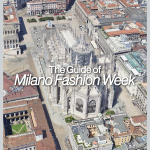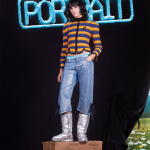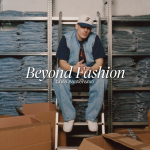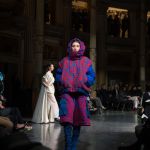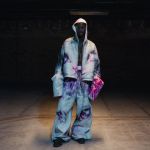
In the past few years, the influencer industry has grown at such a rapid pace around the world that it has become comparable in size and profit to any other successful industry in or outside the world of pop culture. Millennials and Gen Z are closing the books and diving into the vast world of social media marketing and fishing for ways to transform their everyday personalities into brands with the use of social media tools such as instagram.
For nss magazine’s first ever digital cover, we delve deep into the world of the social media influencer. With an editorial, we envision a world where today’s social media personalities of hype beasts, freaks & geeks and fashionistas attended a school specifically tailored to teach the traits of how to amplify their personalities as to become internet sensations. In addition, we join in conversation with some of the industry’s local and international influencers, experts and students to gain their various perspectives as we flesh out the negative and positive potentials and impacts of what has become the influencer industry.
Credits
Photography Gio Corabi
Styling Matteo Greco
Styling assistant Regina Graceselda
Set Designer Lorenzo Dispensa
Casting Director Sabrina Mostrangelo
Hair Gabriele Trezzi
Makeup Luca Cianciolo
Creative Direction nss magazine
Creative Producer Jordan Anderson
Producer Ali Kiblawi
Production: nss factory
The Age of The Influencer - nss magazine Digital Cover
For the launch of our first digital cover, we explore the real meaning of the word "influencer" through conversation with a few of the industry's expert personnel.
September 18th, 2019
During the past decade the monopoly of the influencer industry has drastically evolved from the bedrooms of youtube vloggers and fashion bloggers, and has manifested itself and found its way into the boardrooms of some of the wealthiest companies in and outside the fashion industry. With the rise of the social networks, average people have discovered the power of social media and capitalised on the opportunity to amplify their personalities, and in turn transform themselves into local celebrities with a flock of obedient followers at their fingertips. Granting each successful personality not only an apparent feeling of power and presence over an audience, but with a hefty sum in their pockets from any commercial force who chooses to get behind such influence. Gone are the days when ideal career paths were limited to the likes of medicine, law and other highly academic driven fields, and of course there still exists the forms of literature, performing and visual arts, but social media has taken dominance and birthed the current age of the digital Influencer — an industry that is expected to be worth 10 billion by the year of 2020.
Millennials and Gen Z are either investing in social media as an alternative source of income to their passions or dropping the books entirely to channel all efforts into perfecting their skills of social media marketing. However although both generations have latched on to the idea of influencer marketing, they each seem to carry varying perspectives that are constantly changing and evolving.
“Most millennials remember when bloggers first came on the scene and were the group to usher in the "influencer aesthetic." Gen Z doesn't remember life without the internet and are actually leading the charge of having a social media presence that looks more like real life. Whether that's a vlog that’s lightly edited or a more candid photo that is filter free, there are definitely differences between the two generations when it comes to their approach,” explains Brittany Hennessy, Influencer Marketing Expert & author of INFLUENCER.
However while their exists distinctive different approaches that constantly change platforms from Youtube, to Instagram to Tik Tok, one thing we seem to have struggled with is a set definition for this trade. So what exactly is an influencer?
“An influencer is someone whose being (in any and all forms) shifts the choices of other people.” - Geoff K. Cooper , Fashion & Lifestyle Influencer @geoffkcopper
“An influencer is someone with a following - whether small or large - that has a voice, passion, interest and uses their following to promote certain topics, products or concerns, that are both paid or unpaid.” - Ariane Hussey , London College of Fashion Strategic Fashion Management Student @arianehussey
“Starting from the assumption that it is a word that I do not like because it means everything and nothing and is not particularly always recognizable, I believe that the influencer is a person who stands out from others for particular communication skills. It’s a person who knows how to get in touch with others and who wants to present a vision of his reality, and what surrounds them while arousing interest. “ - Ilaria Grande, Streetwear Connoisseur @ilariabig
Yet through each definition, the common thread seems to be the power to inspire audiences, but having established that, does this mean that people like Martin Luther King, Buddha and Nelson Mandela are considered influencers ? And if this equates social media influencers in a digital age to having a similar level of potential power as that of major social influences, what has caused the negative stigma surrounding the industry ?
“I think people don't understand how much work goes into being a successful influencer. They only hear stories about freeloaders and scam artists but that is such a small percentage of influencers. Most are trying to make a living doing the things they love and living a life they're passionate about. I think a lot of people envy their willingness to get out there and go for their dreams. Who wouldn't want to work for themselves, live a fabulous life, and make lots of money?” - Brittany Hennessy, Influencer Marketing Expert & author of INFLUENCER, @mrsbrittanyhennessy.
“The negative aspect comes maybe from the fact that we like to think of ourselves as unique, self determined and self contained, but as humans we all feed off each other. A child learns to speak and behave through imitation. The contradiction which is ironic and humorous is that Social Media platforms like Instagram are based on ‘Individuality’ and ‘Identity’ but they ended up creating what we now call influencers. People who exert high levels of influence through their visibility or large number of followers.” - William Ndatira, Content Creator @williamcult
“The problem with influencers is that there are so many nowadays. Instagram is saturated with influencers that have started losing their credibility, mainly in part to taking too many or the wrong paid jobs. What originated as someone with a voice and a passion and would only promote this, has turned into people becoming influencers purely for the sake of a quick check - which is strongly reflected in their choices and actions. The “OG” big influencers seem to have more credibility, whether because of previous jobs or education, and additionally they took their roles and turned it into something bigger. “ - Vetle Egeland , Masters of Fashion Experience and Design student, SDA Bocconi @vetleegeland
So the verdict seems to be a few bad eggs, that have contaminated the industry and tainted the public’s view of influencers on a hold, but with the great mass of “influential” voices the internet has created, it’s almost impossible to ensure each one will be singing constructive tunes. In fact, the industry’s overpopulation may open the doors to what leads to its demise. With a large flock of people hoping to jump on board the seemingly glamorous lifestyle, the rate of maximum success seems to become more and more sparse, critics have even claimed the golden age of instagram to be coming to an end. And with an industry facing its first threat of overpopulation, it may find itself in one of two options, crashing or evolving.
“Over time I think 'influencer marketing' as a concept will become broader, and brands will start to understand that all profiles are influential over their circle of followers whether they have 100 close friends and family following them, or an audience of a million, so I think we'll start to see many more schemes like adidas' recently announced partnership with Storr app, or Asos's established brand ambassadorial programme, as brands will increasingly be keen to ensure they achieve sustained presence on social networks, and as the networks themselves will continue to dominate the media landscape.
Instagram profiles are already the new websites for many brands (i.e. the first touchpoint) and as soon as purchases can be completed within the app, turning Instagram into an e-commerce platform, influencer marketing will shift from a brand ambassadorial strategy to a social SEO strategy (i.e. increasingly designed to beat the Instagram algorithm) so my prediction is that influencer marketing will not only grow from where we are now, but will considerably evolve too,“ - Rachel Clay, Head of Social Media & Influencer Marketing @MatterofForm
“I don't think the influencer market is oversaturated. I think some people benefit from that narrative and so it has become a thing they pontificate. The influencer market, in its entirety, in my opinion, is expanding and evolving. The way influence is wielded is changing, biases are being debunked, more POCs are getting opportunities, diversity and inclusion are now factors in influencer engagement, the table that used to reward few is now offering seats to many, and I call that evolution, not saturation.” - Geoff K. Cooper, Fashion & Lifestyle Influencer @geoffkcopper
“The influencers in terms of fashion are only filling the gap magazines have left. A 17 year old boy who wants to know what to buy or how to dress will look at Instagram not buy a print magazine. The styling in magazine was killed by the pressure from big brands to show only full looks from the advertisers. Fashion in New Media (Social Media ) is communicated in different ways from Influencers to Memes. It’s going to evolve when people get bored of influencers posing in the streets holding expensive bags. But the ‘Attention Economy’ is here to stay as long as the platforms collect data and we provide content. The influencers are just a tiny portion of the game being played.“ - William Ndatira, Content Creator @williamcult
And with this great mass of what seems to be an oversupply of influence in society, one can’t help but wonder, how is it that we can we use this mass influence to our advantage in encouraging each other, not only in buying trendy shoes but in social and communal development ? Take the force of 16 year-old Greta Thunberg for example.
“Influencers know how to connect with their audiences very strongly more than sometimes even a brand. If they connect with them over certain things to provoke change like awareness of climate change and the Amazon rainforest etc it can be very well received as they will be able to put their message out in a way that relates to their audience allowing them to receive the message better and have a longer lasting impact. -Ariane Hussey , London College of Fashion Strategic Fashion Management Student @arianehussey
“I think the effectiveness of influencers really comes down to how relatable, believable - but also aspirational sometimes, they are. But I also think credibility is the biggest word, because there are many “influencers” that people purely follow for pretty or interesting content, but if brands want to use influencers they have to be people that will turn followers of the influencer into customers of the brand. I still have yet to purchase a brand or product because an influencer has posted about it - because I really struggle in believing whether the influencer really would choose that brand if they didn’t get paid for the gig. But I also think an influencers job is to aspire, outside just focusing on product. Again, it’s creating the relationship with the followers and connecting on different levels whether it be relationships, jobs, political views, social voice and more.” - Vetle Egeland , Masters of Fashion Experience and Design student, SDA Bocconi @vetlegeland
So presuming that the industry in its current state does evolve and continues to thrive for the next couple decades, acknowledging all the pros and cons, is this an industry you would encourage or even allow your future children to be a part of?
“I sincerely don’t believe in the concept of waking up and randomly deciding to become an influencer. All the influencers that I look up to and respect didn’t take the path intentionally, it simply just happened. Being for free will, I would probably say yes and would encourage them to do what they think is best, as long as they continue to study and keep their creativity alive. Time will then determine whether it is the right way or not.” - Ilaria Grande, Streetwear Connoisseur @ilariabig
“Absolutely. Using and being who you are entirely or creating the self you want to be is an endeavour every human should have the right to do. If that 'influences' people positively, that's not a bad thing at all.” - Geoff K. Cooper, Fashion & Lifestyle Influencer @geoffkcopper
“Influencers with no point of view or special skill will get pushed out, I would push them to have a unique perspective if they wanted to pursue the path. The sake of becoming "insta-famous" for popularity is not fulfilling and long-lasting. So as long as they have a speciality and passion that fuels their "influencing", that is fine with me.” - Matt Chu, Fashion Influencer, @mattchupicchu


























